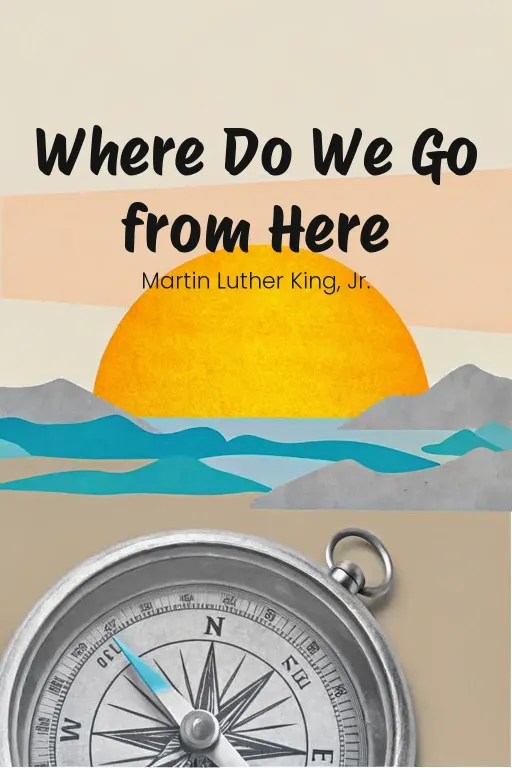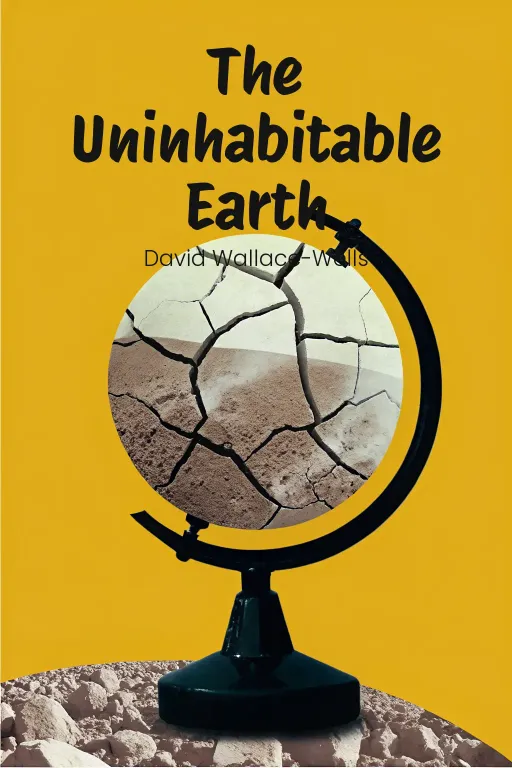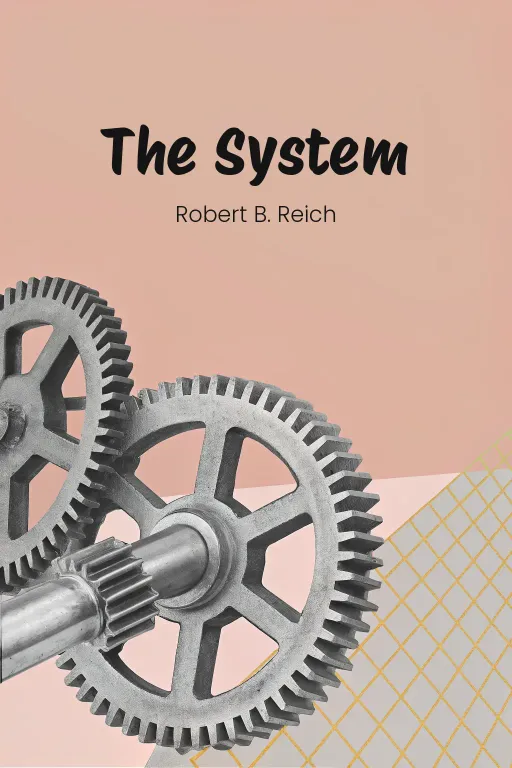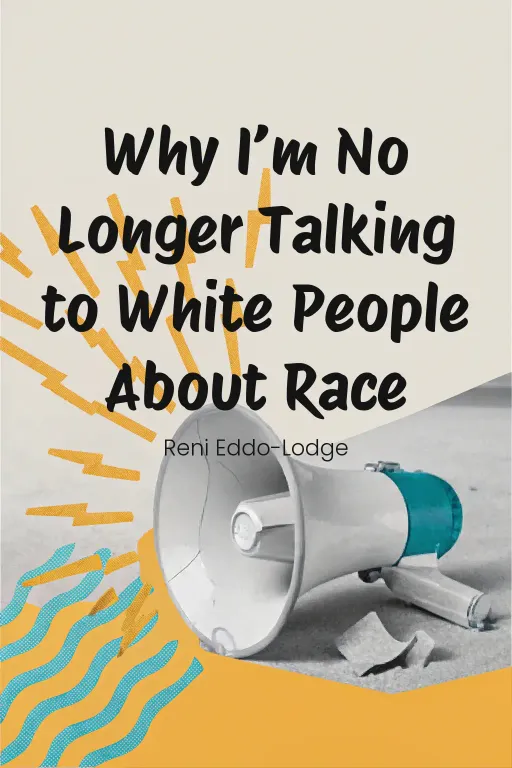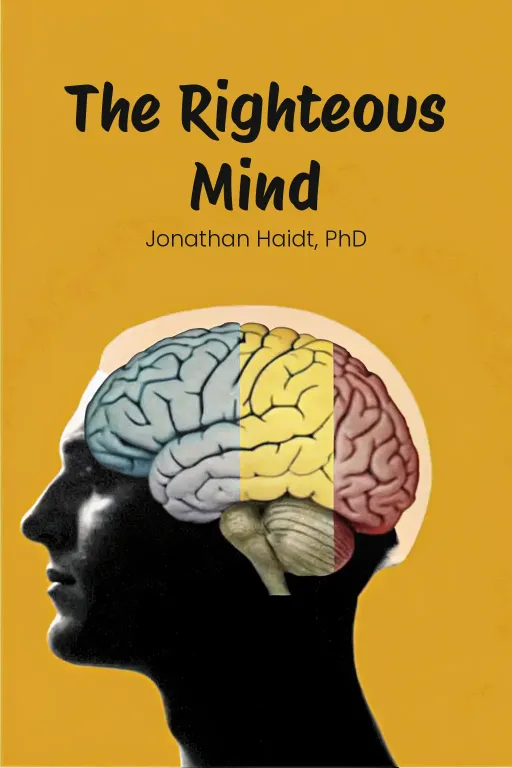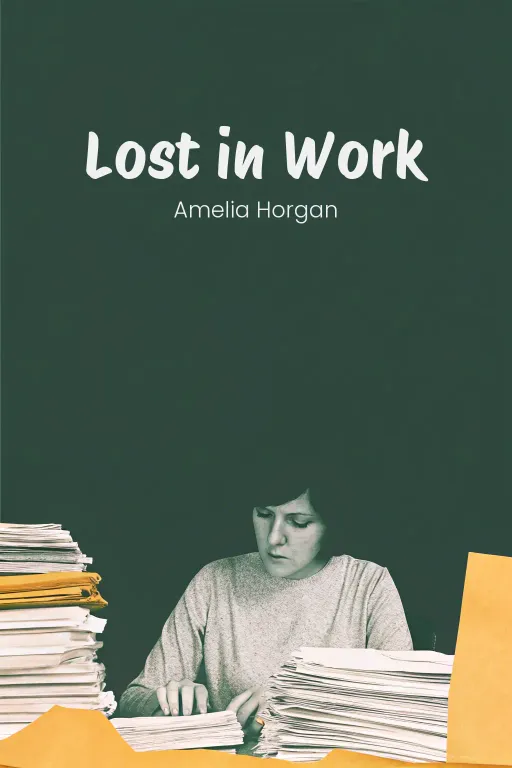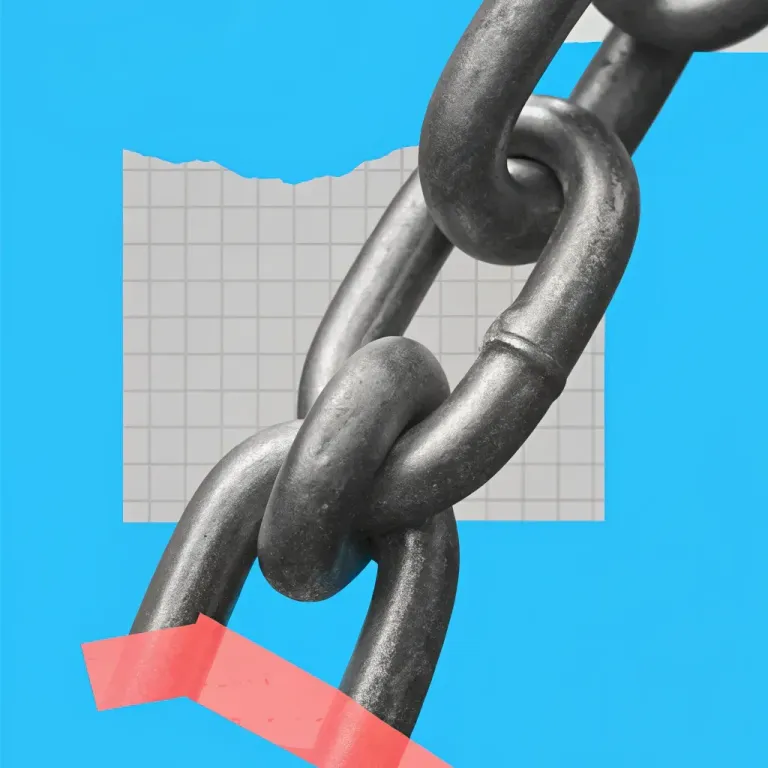
Racism: See the System, Not Just the Hate
Podcast by Civics Decoded with Thomas and Grace
Introduction
Part 1
Thomas: Hey everyone, welcome back. Today we're tackling a really important topic: systemic racism. Ever wonder why race conversations are so draining, or why some folks get defensive instead of receptive when inequality comes up? Grace: Yeah, or why saying "I don't see race" is, well, completely unhelpful? I mean, come on, pretending race doesn't exist doesn't magically create equality. It just means you're choosing to ignore the elephant in the room. Thomas: Precisely! That's why we're diving into Reni Eddo-Lodge's powerful book, “Why I’m No Longer Talking to White People About Race”. It's not just a critique; it's a real wake-up call. She starts with Britain's often-overlooked colonial history, then weaves in personal stories, class differences, and the impact of white privilege. It's a breakdown of how racism still operates pretty much everywhere. Grace: Absolutely. What “really” hit me was how she highlights the resistance to even admitting that racism is built into the system. It's like pointing out major structural flaws in a building, and everyone's like, "Nah, the foundation's solid! It hasn't crumbled… yet." Thomas: Exactly! So, we're going to unpack her arguments in three parts. First, we'll look at how our institutions—schools, workplaces, the police—aren't just "a little biased," but actively reinforce inequality. Grace: Second, we get into the complicated issue of white privilege: Why it's so tough for people to acknowledge, and honestly, how it protects them from having to actually do anything about the problem. Thomas: And third, we'll talk about why intersectional solidarity is so vital. Dismantling systemic racism isn't about quick fixes, is about facing inequality across all forms—gender, class, race—simultaneously. Grace: So, think of this episode as, uh, peeling an onion. It might sting a bit and bring you to tears, but layer by layer, we'll get closer to understanding some of society's most difficult truths. Ready?
Structural and Institutional Racism
Part 2
Thomas: Okay, so let's start with the basics: What “is” systemic racism, exactly? Reni Eddo-Lodge really breaks it down well in her book, and I think it's super important to get this groundwork laid out before we start looking at specific institutions, you know? Grace: Yeah, because when people hear the word "systemic," they might just think it's a fancy way of saying, "a bunch of racists are running the show." But it's way more subtle than just outright hate, right? Thomas: Exactly. It’s not necessarily about individual intent, but rather, the structures and systems that create unequal outcomes based on race. Think of it like...a conveyor belt, but it's rigged. Even if no one working on the line is intentionally racist, the system itself is designed to hold certain groups back or exclude them altogether. Grace: And that's what makes it so hard to tackle, isn’t it? Because if there's no obvious villain twirling a mustache and plotting to oppress people of color, some folks will just say it doesn’t exist. What do you think? Thomas: Right, and that's why Eddo-Lodge shifts the focus from individual prejudice to look at these bigger structural patterns. Like, in education, she gives some really powerful examples of how bias is baked right into the foundational practices. Black students, for instance, are three times more likely to be permanently excluded than their white peers. That's not just random chance; that's a systemic problem that comes from racialized perceptions of discipline. Grace: Makes sense. It's not like these kids are doing completely different things, right? Don't studies show that when teachers don't know who did what, Black students actually score higher? Thomas: Exactly! And that's where unconscious bias gets so destructive. Teachers might not consciously think, "This student isn't going anywhere," but their assumptions leak into how they grade, discipline, and even just talk to students. Grace: Which sets off this kind of snowball effect, yeah? You get labeled a "problem" early on, which hurts your confidence, changes your path and then, shocker, you're less likely to get into a top university. A self-fulfilling prophecy. Thomas: Absolutely. And Eddo-Lodge shows that these barriers aren't just about getting in the door. Even when Black students make it to higher education, the struggles aren't over. There's the lack of representation in the faculty, feeling isolated at predominantly white schools, and the differences in how they end up graduating. Black students will often graduate with lower grades, even when their ability is exactly the same. Grace: So, let's paint a picture here: It starts with "This kid's rowdy" evolves to "They're not university material" then graduates to "They're not the right fit for this job." It's a pretty nasty cycle. Thomas: Exactly. And that brings us to the workforce, where systemic racism keeps blocking opportunities. Eddo-Lodge talks about that CV study from 2009 where they sent out the same qualifications under different names. Resumes with "white" names like "Adam" got way more callbacks than those with names like "Demba." It's a stark reminder that sometimes Black and Asian candidates don’t even get a foot in the door based on something as simple as their name. Grace: You know what that study tells me? That whole "meritocracy" thing is a joke. People love saying "the best person gets the job," so how can that be true if people are being screened out before they even get an interview? Thomas: Exactly! And it only gets worse when you see the bigger trends in unemployment. Between 2012 and 2013, almost half of Black youths were unemployed, versus only 20% of their white peers. These aren't just random numbers; they're symptoms of systemic barriers that start in education and follow people into adulthood. Grace: And it's not just about unemployment, right? It's also about underemployment. Like, even when Black individuals do get jobs, they're often stuck in lower-paying roles or get passed over for promotions. Thomas: Absolutely. It's a lack of opportunity at every level, and it's kept in place through unconscious bias in hiring, stereotypes about what people can do, and unequal access to networks and resources. Grace: Speaking of stereotypes, that brings us to law enforcement–probably where systemic racism feels the most destructive, right? Stop-and-search policies target Black people at crazy high rates. Seventeen times more likely in some areas? That's not a mistake; that's profiling, plain and simple. Thomas: And profiling that doesn't even work! Eddo-Lodge mentions that these searches hardly ever find any criminal activity, but they leave entire communities feeling targeted and alienated from the very institutions that should protect them. Grace: Yeah, because if you're constantly being harassed – and let's call it what it is – how are you supposed to trust the system? And we can't forget about the UK's DNA database, where about 30% of Black men are included, compared to only 10% of white men. It's like they're saying, "We see your race first, and your humanity second." Thomas: Then there are cases like Stephen Lawrence's murder, where the institutional racism within the police department just couldn't be ignored. The Macpherson Report that came out after actually coined the term "institutional racism," bringing to light what many people had been experiencing for decades. And yet, like Eddo-Lodge points out, big changes in policing are still a long way off. Grace: Because let's face it, a report's great, but it doesn't erase centuries of terrible practices or the colonial systems that built these institutions in the first place. That's the real problem, isn't it? All these modern examples we’re talking about – education, jobs, law enforcement – they all come from historical inequities that Britain hasn't fully acknowledged. Thomas: Exactly. And that refusal to confront the legacy of slavery, exploitation, and colonialism means the systems built on those inequities are still intact. Britain's wealth - and, by extension, its hierarchies - was built on the transatlantic slave trade. Yet, outside of academic circles, you know, this history is either glossed over or just completely ignored. Grace: So, we get a history of the empire that’s all about tea, crumpets, and Churchill, and we conveniently skip the whole exploitation part? Thomas: Convenient, but dangerous. Without fully understanding history, it's impossible to really grasp why these issues are still here today or to hold institutions accountable for actually dismantling systemic racism. Grace: Which brings us back to Eddo-Lodge’s main point: Racism isn’t just an occasional bad apple; it’s a structural problem. Until we face it together – in education, jobs, policing, everywhere – we're stuck on that broken conveyor belt.
White Privilege and Allyship
Part 3
Thomas: So, having seen how deeply racism is baked into the system, it’s natural to talk about white privilege and how it keeps these inequalities alive. You know, this idea of white privilege is really central to what Eddo-Lodge is saying, because honestly, it’s like the hidden engine driving systemic racism. Grace: Hidden to those who benefit, anyway. It’s like, imagine you're on one of those moving walkways at the airport, right? Everything feels normal to you. But then someone points out, "Hey, you're moving faster than everybody else." And instead of just accepting that you've got this advantage, you dig in your heels and deny the walkway even exists. Thomas: Exactly! Eddo-Lodge explains so well that white privilege isn't about blaming individuals. It’s about understanding that unearned advantages lead to unequal access to power, opportunities, and just basic safety. A lot of people think privilege is just about money, but it's way broader. Grace: Right. Obvious privilege, maybe a billionaire in a private jet? Sure. But white privilege can be as subtle as walking into a store and not having security follow you, or not having your competence constantly questioned at work. Thomas: Or, like Eddo-Lodge says, just being able to move through the world without constantly having your identity scrutinized. No headlines questioning whether you belong, no panicked conversations about what your presence means for the future of society. Grace: Which leads us perfectly to Enoch Powell’s “Rivers of Blood” speech, because that’s a prime example of playing on white anxiety about racial equality. A Black majority? Fearmongering about losing control? It's the OG playbook on derailing discussions about privilege. Thomas: Powell's speech was all about tapping into white Britons' fear of change, of losing their cultural and economic dominance. And like Eddo-Lodge points out, that fear is still around. Whenever privilege is challenged, you see the same old arguments popping up about a supposed "threat" to the racial balance or even to "British identity." Grace: And just to be clear, nobody's asking to turn back the clock and reverse the power dynamics. It's a completely baseless fear. You know, it's like someone who has a huge feast in front of them freaking out because someone else at the table asks for a slice of bread. Thomas: Perfect analogy. I mean, white privilege is not even realizing you're at a feast. And that Powell speech shows how dangerous it is to deny that privilege. It creates this breeding ground for resentment and defensiveness, which makes any real conversation about equality almost impossible. Grace: Which is what Eddo-Lodge highlights so effectively – that defensive emotional response. She describes it like pouring treacle into someone’s ears: the sheer unwillingness to listen, let alone engage, is staggering. Thomas: That defensiveness often clouds people's understanding of what privilege actually is. Many white people get caught up in feeling guilty or angry, like admitting privilege means taking personal blame for all the wrongs of history. And that just stops the conversation dead, right when it's needed most. Grace: And then you see the performative allyship, yeah? People trying to make amends, but instead of doing the real work, they go for the easy, visible gestures. You know, posting hashtags, sticking Black Lives Matter signs on their profiles. I have to say, it often feels more like a PR stunt than genuine support. Thomas: Exactly, and Eddo-Lodge doesn't hold back on that point. Performative actions might feel good in the moment, but they don't touch the root causes of systemic inequality. She argues that true allyship requires sustained, deliberate engagement that puts marginalized voices front and center and redistributes power, which is a lot more than just showing up at one protest. Grace: That Jeremy Corbyn example she uses – the debate about racial inclusivity being hijacked as a political weapon – it’s such a great example of how shallow that kind of rhetoric can be. It wasn’t about actually improving representation, it became a tool to score political points. Thomas: Absolutely. And that's why Eddo-Lodge is adamant that advocacy needs to go beyond just appearances. It's about real, structural change. Allies need to move past the discomfort of acknowledging privilege and use that energy to tackle the systems that create inequality. Grace: And speaking of discomfort, let’s talk about turning that into action. One of the things Eddo-Lodge says that really sticks with you is that allies shouldn’t expect a pat on the back for doing the right thing. It’s not about getting praise for being "woke", it's about contributing to long-term change. Thomas: Exactly! Genuine allyship means showing up consistently, whether that's donating to anti-racist organizations, holding institutions accountable, or stepping in when you see injustice happening. And doing it without focusing on your own feelings of guilt or discomfort. Grace: That’s easier said than done, though, right? I mean, let’s be real, sitting with discomfort isn’t exactly top of anyone's list of favorite things to do. But her point is so important: real change doesn’t happen if you stay inside your comfort zone. Thomas: For example, just amplifying marginalized voices in predominantly white spaces is a key way to be an ally. Imagine a workplace where only the loudest, most privileged voices get heard. Allies need to actively disrupt that imbalance by making sure everyone has a seat at the table and pushing for changes that aren’t just cosmetic, but are foundational. Grace: "Foundational" is the key word there. We're not talking about diversity days or token hires; we're talking about putting policies in place that ensure real, ongoing equity, things like transparent hiring, mentorship programs, and anti-racism training that actually makes a difference, not just feels like ticking a box. Thomas: And another part of this is self-education. Too often, people of color end up carrying the emotional and educational burden. Allies need to seek out resources – books like Why I’m No Longer Talking to White People About Race – so they can actually have informed conversations about these issues. Grace: And let’s not forget that constructive anger has a role to play. Eddo-Lodge makes a powerful point that discomfort shouldn’t freeze you in place. It’s a catalyst. It's what turns that initial acknowledgment of white privilege into a real drive to dismantle it. Thomas: Which, in the end, really underlines her whole argument: that allyship just can't happen without accountability. People who benefit from a system of privilege have a responsibility to challenge it, not as some kind of savior, but as partners in the fight for justice.
Intersectionality and Collective Responsibility
Part 4
Thomas: Okay, now that we've covered the basics of systemic racism and privilege, it's time to move on to another important aspect: how race connects with other parts of who we are. Reni Eddo-Lodge really digs into how race, gender, class, and other things all mix together to make oppression even worse. And she reminds us that if we want to fix injustice, we can't just focus on one thing at a time. Grace: Exactly. It's like trying to fix a leaky pipe with duct tape when the whole system is corroded. You might stop the drip for a minute, but the real problem is still there. So, this word "intersectionality" gets thrown around a lot. What does it actually mean, and why does it matter so much here? Thomas: Good point, Grace. So, Kimberlé Crenshaw, a Black legal scholar, came up with the term "intersectionality." She used it to explain how different kinds of oppression can overlap and make things even harder for people who have multiple marginalized identities. A classic example is Black women—they face both racism and sexism. And a lot of times, it's not as simple as just one or the other. It's a unique combination. Eddo-Lodge argues that if we don't think about these intersections, we end up ignoring those unique experiences. Grace: So, it's like trying to bake a cake but leaving out the eggs because you think flour and sugar are enough. You end up with something that's technically a cake, but it's missing something essential. Thomas: Exactly. And Eddo-Lodge doesn't hold back when she talks about how mainstream feminism sometimes misses the mark on intersectionality. Historically, feminism has been led by white women who focus on their own issues, like the wage gap or reproductive rights. But they often don't pay enough attention to the voices and issues of women of color, who are dealing with both sexism and racism. Grace: Like that story about how the feminist movement often ignored Black women. It's like throwing a party and saying everyone's invited, but then side-eyeing anyone who shows up with different music. Thomas: Right! Eddo-Lodge even talks about shows like Girls, Lena Dunham's show, as an example. It was supposed to be this revolutionary look at young women's lives, but all the women were white, even though it was set in diverse New York City. It sends a message that white women's experiences are the norm. Grace: Ah, Girls, where the biggest problem is finding the perfect artisanal coffee. It's that kind of subtle exclusion that “really” reinforces who gets to tell their story, right? Thomas: Exactly! And it's not just in entertainment. It happens everywhere, from the policies that get made to the movements that try to change things. Think about discussions around misogyny. For women of African, Asian, or Caribbean descent, their experiences are so connected to racial stereotypes. But because mainstream feminism doesn't always consider those intersections, these women get left out of the conversation. Grace: Yeah, which kind of defeats the purpose, doesn't it? It's like trying to build a house with only half the blueprints. So, let’s talk about another intersection—race and class. Eddo-Lodge talks about how connected these two things are, especially in Britain. I mean, economic inequality doesn't just appear out of nowhere. It's influenced by structural racism. Thomas: Absolutely. Economic disparities are often a direct result of racial discrimination in housing, employment, and education. These disparities create barriers that make it harder for people of color to climb the economic ladder. Grace: Let's talk about gentrification for a sec, because that's where race and class smash into each other. Richer people, often white, move into working-class neighborhoods, kicking out the people who've lived there for ages, who are often people of color. I think Eddo-Lodge brought up Tottenham, right? Where "urban regeneration" was just a fancy way of saying "forced displacement." How does that happen? Thomas: Yeah, that happens because of systemic issues. Councils do these "equality impact assessments," but they still manage to ignore the people they're displacing. And then, when they build new stuff, the affordable housing is either nonexistent or impossible for the people who need it most to actually get. Grace: And the media paints it as "improvement," conveniently forgetting to mention who's benefiting from that improvement. It's like redecorating your apartment and then sending the previous tenant the bill, isn’t it? Thomas: Exactly. People don't just lose their homes. They lose access to jobs, schools, and the support networks they've relied on for generations. It's like their whole lives are being erased. Grace: And let's not even get started on how we talk about class and race. “White working class." Why is it that they are always the face of economic struggle—like working-class people of color don't exist or something? Thomas: Exactly! These narratives create a false picture, where racialized groups are left out of the broader conversation about class inequality. Instead of actually fixing the root causes, we get stuck in identity politics, and race gets ignored or downplayed. Grace: So, that brings us to Eddo-Lodge's point about collective responsibility, because we're not going to fix any of this by pointing fingers. You know, she wants all of us, everyone, to make these changes, from learning more ourselves to fixing the systems that are broken. Thomas: Absolutely. And it means changing the way we see things. Recognizing that privilege exists, even if you don't feel like you're on top. And working to take down the structures that keep it in place. Eddo-Lodge points out that a lot of people just tune out because they feel uncomfortable or attacked. Grace: Yeah, and defensiveness is the enemy. It's that whole "but I've had it hard too" argument, which totally misses the point. Acknowledging privilege isn't about saying you haven't struggled. It's about seeing that you have advantages others simply don't. Thomas: And part of that involves informing yourself. Eddo-Lodge emphasizes learning history, especially Britain's colonial history, the realities of slavery, and how they continue to affect us today. Without that knowledge, you can't understand the structures that keep inequality going. Grace: Which brings us back to her critique of meritocracy, doesn't it? This idea that anyone can make it if they just try hard enough completely ignores how stacked the deck is. It's like telling someone to pull themselves up by their bootstraps when they don't even have boots. Thomas: Exactly. This belief in meritocracy stops us from addressing the real problems because it puts the blame on individuals instead of the systems that limit them. That’s why Eddo-Lodge advocates for redistributive justice, not just evening the playing field but fundamentally reshaping it. Grace: I like that she gives us things we can actually do, though. Like, how we can amplify marginalized voices, fix broken systems, like housing and education, and make daily choices that challenge inequality. It's not easy, but it's necessary. Thomas: And at the core of all this is solidarity, right? Eddo-Lodge says we should address the many different barriers people face, not just one at a time. Forming coalitions that fight for equity across race, gender, class, and so much more. Grace: So, in short, intersectionality means seeing the whole web of oppression, not just the parts that affect us directly. And collective responsibility means doing the work to untangle that web, together. That's how we make change that lasts.
Conclusion
Part 5
Thomas: Okay, so today we're diving deep into Reni Eddo-Lodge's super impactful arguments. We're talking systemic racism, white privilege, and the real need for intersectional solidarity. She really breaks down how inequality is baked into everything, from schools to workplaces, even the legal system and just the overall structure of British society—it's not accidental, it's by design. Grace: Right, and let’s talk about white privilege for a second. It's like this invisible scaffolding some people benefit from, but a lot of them just don't want to see it. It's either too inconvenient or makes them feel too uneasy. But it's not about pointing fingers, is it? It's about understanding what our responsibilities are. Thomas: Precisely. We have a responsibility to really face history head-on, to listen intently, and then to actually do something. What Eddo-Lodge is calling for isn't about being a passive ally or just making empty gestures for show. She wants real, ongoing commitment–redistributing power, making sure those voices that are often ignored are heard, and getting to the core of these structural inequalities and solving them. Grace: Because, honestly, if we're serious about change, it can’t just fall on the people the system already pushes to the margins, right? It’s got to be a group effort. It means making some really tough, uncomfortable decisions—and doing it without expecting a pat on the back. Thomas: Absolutely. So, here’s what we're putting out there as a challenge: Educate yourself. Question the systems you're part of. And don't underestimate feeling uncomfortable, because, usually, that's the first step toward real progress. Like Eddo-Lodge says, change isn't going to be quick or easy, but it's something we absolutely have to do. Grace: And keep in mind, this affects every single one of us. If some people are benefiting from privilege now, it's because the system is leaving others behind. Real progress isn’t just about making things a little fairer for some; it’s about redesigning the whole playing field. So, really, what are you prepared to do about it?

